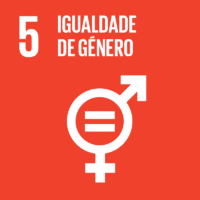In 2006 the second major wave in the number of mixed couples in Spain began. The same year we got our first I+D project, which was followed by two more. These three studies, covering a period of almost ten years (2006-2015), provide us with a comprehensive view of the fundamental characteristics of binational couples formed by a Spaniard and a foreign spouse. More specifically, characteristics concerning to the origins, constitution, motivations, expectations, gender relations and identity negotiations, since these are our research basic axes. This panoramic view is mostly based on the nearly 150 in-depth interviews and more than 190 informants involved. From these projects we have a static image, a snapshot of the issues raised in a time when most of these couples were recently established and were therefore in the initial phase of their relationship. Many of them had no children, divorce cases were rare, the foreign spouse was still in the process of acquiring citizenship, applying for the recognition of their university degree or looking for a first job. Most of these couples were just rehearsing their interaction formulas with their families of orientation, and some issues that eventually became capital were not even raised yet. In addition, in many of our interviews the effects of the economic crisis were not present or were not very noticeable. Effects that in some cases, as we have documented in our third project, have led to the emigration of some of the couples to the country of origin of the foreign spouse. The present project, supported by all the background accumulated over the past studies, intends to overcome the temporary limitation of the results, as well as to record the changes and continuities experienced by these couples since we last interviewed them. We are going to connect with the biographical trajectories of a sample selected from the large number of informants previously interviewed, using the methodology of longitudinal qualitative research (LQR). The LQR is the best tool to investigate the processes of change and reproduction over time, especially in relation to processes of evolution, transformation or creation of identities. More precisely, we are interested on the roles linked to gender identity and the cultural identity negotiation between the members of the couple and within the eventual mixed family. These are the main units of analysis that, in the same line with our previous research, we intend to address, using the LQR, a methodology in which time and emphasis on change are inevitable dimensions.
| Centro de Investigação | Grupo de Investigação | Papel no Projeto | Data de Início | Data de Fim |
|---|---|---|---|---|
| CRIA-Iscte | -- | Parceiro | 2016-06-01 | 2018-05-31 |
Não foram encontrados registos.
| Nome | Afiliação | Papel no Projeto | Data de Início | Data de Fim |
|---|---|---|---|---|
| Antónia Lima | Professora Associada (com Agregação) (DA); Investigadora Integrada (CRIA-Iscte); | Investigadora | 2016-06-01 | 2018-05-01 |
Não foram encontrados registos.
Não foram encontrados registos.
Não foram encontrados registos.
Não foram encontrados registos.
Não foram encontrados registos.
Não foram encontrados registos.
Com o objetivo de aumentar a investigação direcionada para o cumprimento dos Objetivos do Desenvolvimento Sustentável para 2030 das Nações Unidas, é disponibilizada no Ciência_Iscte a possibilidade de associação, quando aplicável, dos projetos científicos aos Objetivos do Desenvolvimento Sustentável. Estes são os Objetivos do Desenvolvimento Sustentável identificados para este projeto. Para uma informação detalhada dos Objetivos do Desenvolvimento Sustentável, clique aqui.

 English
English


